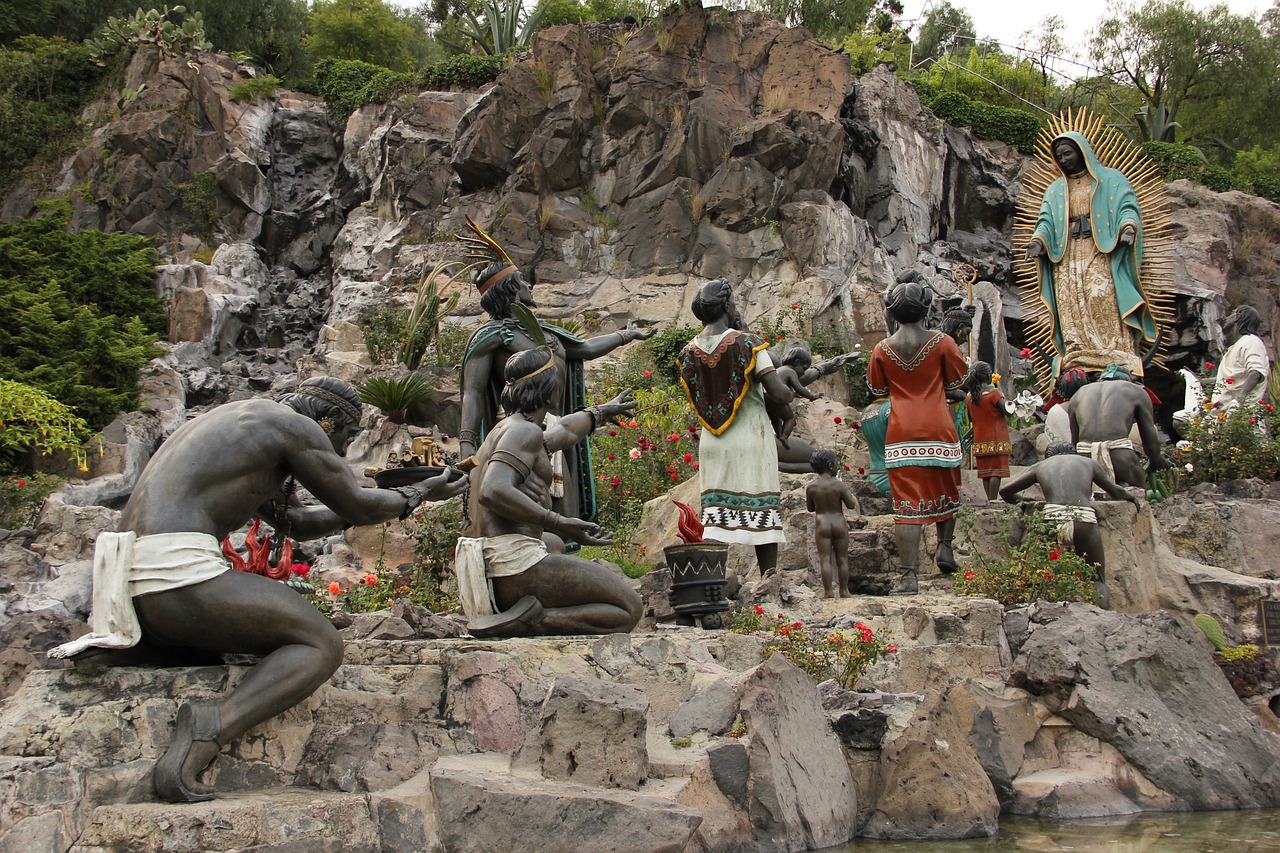Guadeloupe Video
Local Celebrations and Holidays: What to Expect in Guadeloupe
Guadeloupe, an archipelago located in the Caribbean Sea, is known for its vibrant culture and rich traditions. The island celebrates a variety of local festivities and holidays throughout the year, showcasing the unique blend of African, European, and Caribbean influences. From colorful parades to traditional music and dance performances, Guadeloupe offers visitors a chance to immerse themselves in its lively celebrations. This article will guide you through the different celebrations and holidays in Guadeloupe, providing insights into what to expect and how to make the most of your visit.
Carnival: A Festive Extravaganza
One of the most anticipated events in Guadeloupe is the Carnival, a month-long celebration held between January and March. Carnival is deeply rooted in African traditions and features vibrant parades, elaborate costumes, and lively music. The streets come alive with the sounds of drums and the sight of colorful masquerade bands known as “groupes à pied.” Expect to see dancers dressed in elaborate costumes, showcasing their creativity and talent. The festivities culminate with the burning of “Vaval,” a symbolic effigy representing the end of Carnival.
- Costumes: Carnival in Guadeloupe is all about the costumes. Participants spend months designing and creating intricate outfits, often incorporating feathers, sequins, and vibrant colors. Each costume tells a unique story and reflects the individual’s creativity.
- Parades: The Carnival parades are a sight to behold. Groups of revelers, accompanied by live music bands, parade through the streets, showcasing their costumes and dancing skills. The atmosphere is energetic and infectious, with spectators joining in the fun.
- Traditional Music and Dance: Local music genres like zouk and gwo ka take center stage during Carnival. Zouk is a popular dance music style, while gwo ka is a traditional drumming and dance form. Expect to hear infectious rhythms and witness impressive dance performances.
- Street Food: Carnival is also a time to indulge in delicious street food. Vendors line the streets, offering a variety of local delicacies such as bokit (fried bread stuffed with various fillings), accras (deep-fried cod fritters), and sorbet (fruit sorbet).
Easter: A Religious Celebration
Easter is a significant religious celebration in Guadeloupe, observed with religious processions, church services, and family gatherings. The island’s Catholic heritage is prominent during this time, and visitors can witness traditional religious practices and rituals.
- Religious Processions: Guadeloupeans participate in solemn processions, carrying statues of religious figures through the streets. These processions are accompanied by prayers, hymns, and incense, creating a reverent atmosphere.
- Church Services: Attending a church service during Easter is a meaningful experience in Guadeloupe. The services are held with great devotion, and visitors can witness the local community coming together to celebrate their faith.
- Family Gatherings: Easter is a time for families to come together and share a special meal. Traditional dishes like lamb stew, salted codfish, and coconut-based desserts are prepared and enjoyed in the company of loved ones.
- Beach Excursions: As Easter falls during spring in Guadeloupe, many locals and visitors take advantage of the pleasant weather by heading to the beach. It’s a time for relaxation and enjoying the natural beauty of the island.
Fête des Cuisinières: Honoring Culinary Traditions
The Fête des Cuisinières, also known as the Cooks’ Festival, is a celebration of Guadeloupean culinary traditions. This unique festival pays homage to the women who have preserved and passed down the island’s traditional recipes and cooking techniques.
- Parades and Processions: The Fête des Cuisinières kicks off with colorful parades and processions, featuring women dressed in traditional Creole attire. They carry baskets filled with local produce and culinary delights, symbolizing the importance of food in Guadeloupean culture.
- Outdoor Cooking Demonstrations: During the festival, visitors can witness outdoor cooking demonstrations, where local cooks showcase traditional cooking methods and share their knowledge of Guadeloupean cuisine. It’s an opportunity to learn about the island’s unique flavors and ingredients.
- Tastings and Food Stalls: The festival is a food lover’s paradise, with numerous stalls offering a wide array of traditional dishes. Visitors can sample local specialties such as accras, boudin (blood sausage), and dombrés (dumplings).
- Live Music and Dance: The Fête des Cuisinières is accompanied by live music performances, featuring traditional genres like zouk and beguine. Attendees can dance to the infectious rhythms and immerse themselves in the festive atmosphere.
Guadeloupe Image 1:

Feast of Our Lady of Guadeloupe: A Spiritual Gathering
The Feast of Our Lady of Guadeloupe is a religious celebration that honors the island’s patron saint, the Virgin Mary. This annual pilgrimage attracts both locals and visitors who come to pay their respects and seek blessings.
- Pilgrimage: The Feast of Our Lady of Guadeloupe begins with a pilgrimage to the Basilica of Our Lady of Guadeloupe in Basse-Terre, the capital city. Thousands of devotees embark on a spiritual journey, walking long distances to reach the basilica.
- Religious Ceremonies: The pilgrimage is followed by religious ceremonies, including Masses and processions. The faithful gather to pray, sing hymns, and participate in rituals that express their devotion to the Virgin Mary.
- Cultural Performances: The Feast of Our Lady of Guadeloupe is not just a religious event; it also showcases the island’s cultural heritage. Visitors can enjoy traditional music and dance performances, highlighting the fusion of African, European, and Caribbean influences.
- Local Crafts and Art: The pilgrimage site is often surrounded by stalls selling locally crafted items such as pottery, paintings, and handmade jewelry. It’s an opportunity to support local artisans and take home unique souvenirs.
Guadeloupe Image 2:

Assumption Day: A Day of Reflection
Assumption Day, celebrated on August 15th, is a public holiday in Guadeloupe and holds religious significance. It commemorates the belief that the Virgin Mary ascended into heaven after her earthly life.
- Church Services: On Assumption Day, churches across the island hold special services to honor the Virgin Mary. The faithful attend Masses and participate in prayers, reflecting on the spiritual significance of the day.
- Processions: Some towns organize processions, where statues of the Virgin Mary are carried through the streets. These processions are accompanied by hymns and provide an opportunity for the community to come together in prayer.
- Family Gatherings: Assumption Day is also a time for families to gather and enjoy a meal together. Traditional dishes like colombo (spicy meat stew) and accras are often prepared and shared, strengthening familial bonds.
- Outdoor Activities: Many Guadeloupeans take advantage of the public holiday to engage in outdoor activities. Beach outings, hiking, and picnics in nature are popular choices for enjoying the day off.
Independence Day: Celebrating National Pride
Independence Day is a significant holiday in Guadeloupe, marking the island’s independence from colonial rule. It is celebrated on July 14th, coinciding with Bastille Day in France.
- Official Ceremonies: Independence Day begins with official ceremonies attended by local authorities and dignitaries. Speeches, flag-raising ceremonies, and military parades are held to commemorate the occasion.
- Fireworks: As night falls, fireworks light up the sky in celebration. Spectators gather in parks and public spaces to witness the colorful displays and enjoy the festive atmosphere.
- Concerts and Performances: Independence Day is also marked by live music concerts and performances. Local artists take the stage, showcasing their talent and entertaining the audience with a mix of traditional and contemporary music.
- Food and Drink: Food stalls offering traditional Guadeloupean cuisine are set up in various locations, allowing visitors to savor local delicacies while enjoying the festivities. Refreshing drinks like Ti’Punch, a rum-based cocktail, are also popular choices.
Guadeloupe Image 3:

Conclusion
Guadeloupe’s local celebrations and holidays offer a unique insight into the island’s vibrant culture and traditions. Whether you visit during Carnival, Easter, the Fête des Cuisinières, the Feast of Our Lady of Guadeloupe, Assumption Day, or Independence Day, you’ll have the opportunity to immerse yourself in the colorful festivities, taste delicious cuisine, and witness the fusion of African, European, and Caribbean influences. Plan your trip accordingly and make sure to experience these celebrations to truly understand the essence of Guadeloupean culture.
References
– guadeloupe-islands.com
– caribjournal.com
– routard.com
– lonelyplanet.com
– guadeloupetourisme.com


